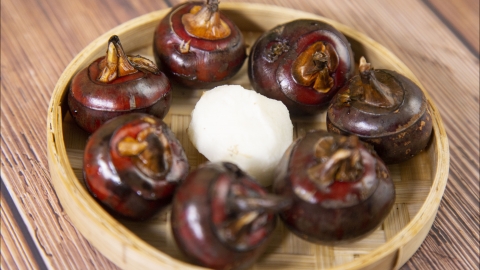What are the functions and benefits of water chestnut (Trapa natans)?
Water chestnut, also known as Chinese water chestnut, typically offers various health benefits, including promoting saliva production to relieve thirst, moistening the intestines to facilitate bowel movements, lowering blood pressure, clearing the lungs and resolving phlegm, and clearing heat and detoxifying the body. Detailed explanations are as follows:

1. Promoting Saliva Production and Relieving Thirst
Water chestnuts are rich in water content and can directly replenish the body's hydration, alleviating symptoms of thirst. Additionally, they contain various sugars, such as glucose and sucrose, which provide energy for the body, help maintain normal metabolism, and further regulate the body's fluid balance, thereby promoting saliva production and relieving thirst.
2. Moistening the Intestines and Facilitating Bowel Movements
Water chestnuts are rich in dietary fiber, which can absorb water in the intestines, increase stool volume, and promote intestinal peristalsis. At the same time, they can stimulate the intestinal mucosa, accelerating the elimination of feces, thus helping to moisten the intestines and relieve constipation.
3. Lowering Blood Pressure
Water chestnuts contain a certain amount of potassium, which helps promote the excretion of sodium and regulate the body's sodium-potassium balance, thereby assisting in lowering blood pressure.
4. Clearing the Lungs and Resolving Phlegm
Rich in vitamins, water chestnuts can promote metabolism and have effects of clearing lung heat, moistening lung dryness, and resolving phlegm. They can help treat symptoms such as cough caused by lung heat and expectoration of thick yellow phlegm.
5. Clearing Heat and Detoxifying
From the perspective of traditional Chinese medicine, water chestnuts are cold in nature and possess good heat-clearing properties. They can eliminate internal heat and toxins, and help alleviate symptoms such as sore throat, swollen gums, and red, swollen, painful eyes caused by heat toxicity.
Water chestnuts grow in paddy fields and may have dirt and parasite eggs attached to their surfaces. They should be thoroughly washed before consumption, and it is best to peel them to ensure food safety. Consumption should be moderate to avoid adverse effects caused by excessive intake.




